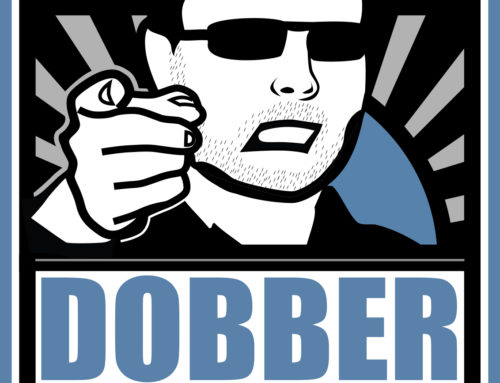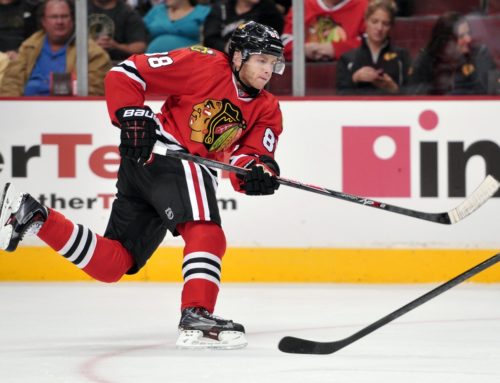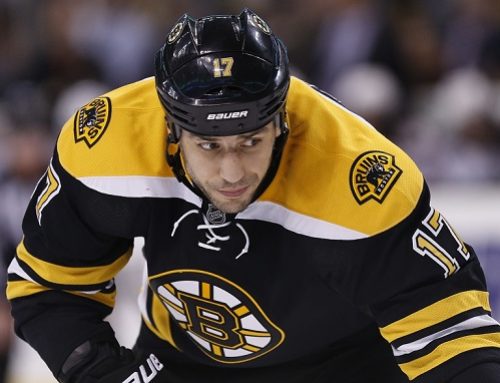Decisions, Decisions, Decisions
Dobber Sports
2009-12-23

Fantasy hockey is an exercise in decision making. Successful fantasy GMs are separated from their less decorated peers by virtue of their decisions. That's not to say that plain old dumb luck isn't a factor – we all know it is. But despite this, we bravely do our best to anticipate trends, or at worst, we try to react effectively to unforeseen events.
In order to do that better than the next guy, we soak ourselves in information. Who's starting tonight? Who's that less-than-50% owned winger currently riding a 13-point-streak over the past nine games? Which Detroit Red Wing is the next to get hit with a long-term injury? Many fantasy articles focus on dolling out timely information, and rightly so. But bleeding-edge information is only half of the game, once you've got it, you need to decide how to act on it. And that's where our decision making skills come into play.
Every once in a while, hockey coaches do something wacky during practice (anybody for dodge-ball on skates?). In that same spirit, this fantasy hockey article is going to be a bit different than most. As a book-end to my September article about gut feelings on draft day, I'm going to discuss a mental tool that might help you take better advantage of all that information that is out there, particularly the excellent info found at this very site. Ahem.
The OODA Loop
Fortunately, lots of smart people have spent a great deal of time trying to figure out how to help the rest of us make better decisions. In particular, the military has worked hard to create simple, useful tools to help its leaders make the right call, even when events are developing rapidly and when information is imperfect. While none of us need to figure out how to coordinate a close air strike with our company's assault of a built up urban area, we do need to deal with an ever-changing hockey battlefield of injuries, line combinations, hot goaltenders, and point streaks. That can be a lot to handle if you don't have a simple way of quickly processing the flow of information and using it to your advantage.
Way back in the days when Number 4 was playing for the Bruins, a United States Air Force fighter pilot by the name of John Boyd was thinking about how to make better decisions. He came up with this process:
- Observe;
- Orient;
- Decide; and
- Act.
He named this tool the OODA Loop (pronounced "ooo-dah"). I know, I know…it sounds like something your vegetarian friends from Vancouver might order at a Queen St. West restaurant (in downtown Toronto). But it's become a very popular decision making tool in both western militaries and the private sector. And it just might help you to win your hockey pool. In fact, you likely already have three quarters of the loop down pat. So let's look at each component.
Observe: You need sources for good, up-to-date information, and you probably already have your favourites (a new favourite for me for me is leftwinglock.com, which compiles information on starting goalies based on local sources– thanks to Kev for this one).
If you know something first, you can act first. But just knowing isn't enough, you need to conduct some analysis to determine how to best use this information. Which brings us to the next step.
Orient: This is the most important step in the loop. During this step, you must place the information into a context that is meaningful to you. The information can't just be meaningful to Greg Wyshynski at Puck Daddy (despite his recent nomination as the 99th most important person in hockey according to The Hockey News), or me, or any other writer, the information must be made to be meaningful you and your fantasy gang.
Often people are criticized for making bad decisions, but rarely are these people stupid. Unlike certain skills like having soft hands (which I sadly lack), good decision making isn't something that you either born with or not. It can be taught. Bad decisions can result from not appreciating the importance of something, or more usually, they result simply because someone jumped from the Observe step of the loop to the Decision step without pausing to think a moment.
For example, grabbing up Tyler Myers from the waiver wire just because Matt Romig at Yahoo recently pointed out six-foot, six-inch defenceman's solid play might be a good idea, or it might not. It depends on a number of factors, including: how your team is doing in various fantasy categories, and whether you can grab Myers as a free agent or whether you must expend your waiver priority to obtain Buffalo's talented rookie.
In business and military circles it's understood that asking questions like these is necessary to transform information into intelligence. And in those same circles it is well recognized that it is intelligence drives good decisions, not simple information.
Worried that doing the analysis to correctly orient yourself is difficult or time consuming? Don't be. Just be sure to always ask yourself, "so what?" after reading a piece of hockey information. Most good writers will include a "so what?" aspect in their articles, but your job is to customize it to your own needs.
Decide: Making a decision is easy, the question is: have you considered the right factors to ensure it likely the right one? If you've spent a moment to orient yourself in light of the new information, you're much more likely to make the right decision.
Act: Modern systems like Yahoo have made this part easy for fantasy GMs. Click a button and presto, action taken.
By following the OODA Loop, you'll be better prepared to quickly adapt to the changing landscape of the fantasy hockey season.
Your Fantasy Hockey Take-Aways
Everybody wants to win their pool, and nobody wants to drown in a flood of fantasy hockey information. Boyd's OODA Loop can help you on both fronts:
- While they may seem unspectacular at first glance, a simple mental tool like the OODA loop will allow you to adopt a systematic and rapid method of processing new information that will lead to improved decision making; and
- Don't skip the Orient step, it is the most important step in the OODA Loop. By consistently asking yourself a simple question like, "so what?", you'll make better decisions and that will translate into a better finish in your pool.
All that said, you're still on your own when it comes to what you're going to get your significant other for the holidays.
Until next time, I wish you a happy and safe holiday (even if you're cheering for Team Russia come Boxing Day).





 FLA
FLA CHI
CHI NYR
NYR PIT
PIT L.A
L.A COL
COL WPG
WPG CBJ
CBJ MTL
MTL STL
STL WSH
WSH TOR
TOR SEA
SEA NYI
NYI PHI
PHI NSH
NSH
